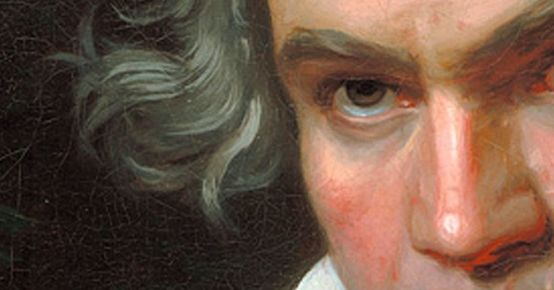"The glorious moment"
Beethoven every Friday: to mark his 250th birthday, we take a look at one of his works every week. Today it's the cantata "The Glorious Moment".

What would Beethoven have said when Robert Schuman formulated the first steps towards a united Europe in a declaration on May 9, 1950? The peace of the world could only be preserved through creative efforts, and: "Europe cannot be created in one fell swoop, nor by a simple summary. It will emerge through concrete facts that first create a solidarity of action." Even 70 years later, these words from the French foreign minister at the time are still justified. In a sense, they are also derived from the experiences of the early 19th century, when only the community of many nations was able to put a stop to Napoleon and his troops. The fact that the Congress of Vienna, which soon followed, did not fulfill the hopes of all those people who had made sacrifices, is another matter ...
For the Danube metropolis, the years 1814/15 were a time of great celebrations and amusements, as the heads of state and their entourages were not only to be entertained in the best possible way: The ballroom often became a place of diplomacy. So much stateliness also encouraged the creation of festive cantatas. However, such occasional works lead a shadowy existence in music history, if they have not fallen completely through the cracks. In the fall of 1814, for example, Beethoven created the Glorious moment a composition that was only performed twice more during his lifetime after the high-profile festive concert on November 29 of that year. It was not published until 1835, but then in a lavish and expensive edition. Two years later, the publisher replaced the original, situation-related libretto with a more general poem by Friedrich Rochlitz (Sound Art Prize) and explicitly pointed out in the preface to the edition that this "did not necessitate the slightest change in the music" have.
Beethoven was fully aware of the representative function of his composition. The expansive movements, the rich forte of the orchestra and the choral parts, many of which are reminiscent of Handel, are still evidence of this today. No. 3 is probably the most unusual and impressive (O heavens! what a delight!), in which the solo soprano and choir are joined by a solo violin. The finale, with its piccolo and effective "Turkish music", takes up some of the later Ode to joy but here it is further expanded by the use of a children's choir. Beethoven's later plan to precede the work with an overture was not carried out. - The Leipzig newspaper reports on the premiere General musical newspaper: "Apart from the highest court and all the monarchs present ... the hall was full to bursting." All these circumstances did little for the work. The glorious moment has remained an insider tip to this day.
Listen in!







